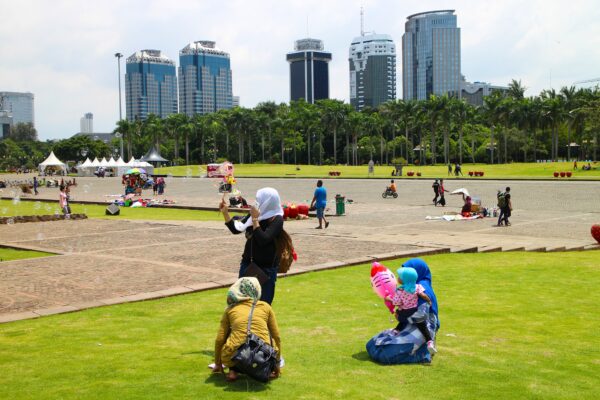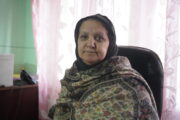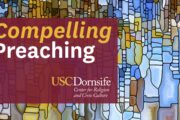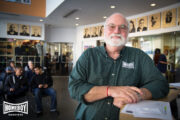A few minutes after newswires began to buzz with reports of a terrorist attack in Indonesia, I received a text from a friend at the Los Angeles Times. “My Starbucks in Jakarta got bombed!” he wrote.
The two of us, along with another USC Annenberg alum, traveled to Indonesia last March with a group of graduate students in Annenberg’s journalism program. We divided our 10 days between Yogyakarta, a cultural center in south-central Java, and Jakarta—where we stayed in a hotel about a block from the Starbucks that was targeted in last week’s terrorist attack. The title of our group’s reporting project for GlobalPost: Indonesia and Islam in the Age of ISIS.
After the trip I wrote about LGBT rights in Indonesia and Muslim “nones,” but the bigger story is how Islam, like other global religions, is evolving in a time of intense cultural flux. With that in mind, I’ve been reporting on “the other Muslim fringe”—artists, organizers, LGBT people and women who are adapting their practice of the faith to include those who have been marginalized and reaching out to non-Muslims committed to promoting tolerance in pluralistic societies.
In addition to stories from Indonesia, I’ve written on the opening of the Women’s Mosque of America and, most recently, the forward-looking work of Muslim Millennials in Europe.
The young Muslims in these stories may not grab headlines like ISIS, but they are much more authentic representatives of the leading edge of mainstream Islam.
One of the most important things to understand about Indonesia in the wake of the recent extremist violence is that the country’s political culture is religiously pluralistic rather than theocratic or secular. Although belief in God is enshrined in the country’s constitution, there are six officially recognized religions, and the country has nurtured numerous institutions that serve to balance competing religious interests. The most prominent of these groups are Muhammadiyah and Nahdatul Ulama (commonly known as NU), two of the largest Muslim NGOs in the world.
This makes the religio-political culture of the world’s largest Muslim-majority country fundamentally different from Saudia Arabia’s conservative brand of Sunni Islam—a distinction that becomes quite apparent when you look at the history of minority rights in Indonesia. Dede Oetomo, founder of the country’s oldest gay rights advocacy group, said that thwarting legislative initiatives to criminalize gay sex at the national level — the last such measure, proposed in 2003, failed decisively — is an aspect of the NGOs’ broader, ongoing opposition to conservatives who want to “Arabize Indonesian Islam.”
“Like with gay people,” Oetomo said, “they may not issue a statement that they support Shiites in Indonesia (a religious minority in the Sunni-majority country), but they do.”
That support is often most apparent at the local level, where Indonesia’s relatively weak central government and corrupt judicial system provide opportunities for reactionaries, often enriched by Saudi money, to harass groups that are offensive to orthodox Sunni sensibilities. This harassment includes forcing the closure of mosques that belong to the Shia and Ahmadiyya sects, denying building permits to Christian groups, allowing agitators to disrupt LGBT gatherings and forcing nonbelievers into hiding.
Some of my interview subjects in Europe spoke of waging a similar struggle against orthodox Sunni money and influence from Saudi Arabia. In Indonesia, creating a counterweight against those socially conservative and theocratic forces unites Muhammadiya, NU and surprising array of interest groups, including LGBT rights advocates.
Jakarta is the social media capital of the world, and the terror attacks predictably spawned a hoard of memes and hashtags. Two of the most popular Facebook and Twitter items were a photo of a satay vendor who set up his cart near the scene of the carnage (“Stay Calm, Grill Satay”) and #KamiTidakTakut (“We are not afraid”).
The proliferation of these signs of opposition—#KamiTidakTakut appeared in more than 8 million Twitter timelines—is a reminder that very few Indonesians are interested in ISIS. In fact, very few of the world’s 1.6 billion Muslims are interested in ISIS. An attack on a Starbucks in Jakarta is certainly newsworthy. But it’s also important to note that in the world’s largest Muslim city—capital of the world’s third-largest democracy—the future of Islam is happening every day.
Nick Street was a senior writer with the USC Center for Religion and Civic Culture.








